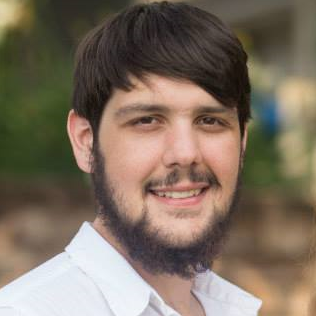Student Spotlight: Eugene Law

June 29, 2020
Eugene Law is a doctoral candidate in soil and crop sciences from Syracuse, New York. After attending SUNY College of Environmental Science and Forestry in Syracuse, NY, he chose to pursue further study at Cornell due to the high ranking of its agricultural science programs as well as the location.
What is your area of research and why is it important?
I am broadly interested in environmental, economic, and social sustainability of agriculture and food systems. During my Ph.D. I have been researching perennial grain cropping systems in New York with projects that examine crop management, environmental benefits, and economic implications. Perennial crops are interesting in the context of agricultural sustainability because they produce staple foods while reducing many of the negative side effects of annual crops, such as soil erosion, water pollution, and loss of wildlife habitat. They are, however, a very new development in agriculture and there is a lot we need to learn about producing and utilizing these crops.
For some more information on what we’re doing, there was a recent Cornell Chronicle article on some of our work.
What are the larger implications of this research?
Annual grain crops including wheat, rice, and maize make up over 70% of calories consumed globally. This currently requires more than a billion hectares of land and has a massive impact on the environment. If we could maintain food production, reduce inputs, and protect our soil and water by converting all that land to perennial grain crops it would be a paradigm shift in agricultural sustainability.
What inspired you to choose this field of study?
I grew up in an urban setting and any farming in my family was a few generations back, but I was always outdoors as a kid through Scouting and other activities. My love of nature led me to SUNY ESF where I studied environmental engineering, biology, and environmental science and developed a passion for systems science and sustainability. Food justice and food sovereignty took on additional importance to me during my M.S. program where I worked on restoring traditional food plants of local indigenous peoples, and it seemed like a natural progression to study agricultural sustainability as a Ph.D. student.
What does it mean to you to be a Bouchet scholar?
I see the Bouchet Society as an opportunity to learn from and collaborate with a network of scholars that are motivated to foster change in higher education. I believe in the strength of collective action, knowing that I am more effective if I support and am supported by others. I believe that the mission of the society to support the advancement of others from backgrounds underrepresented in the academy will be the most effective way to change these systems in the long term, as it will strengthen our communities, raise our voices, and increase our capacity to take action.
How do you exemplify the five pillars of the Bouchet Society – character, leadership, advocacy, scholarship, and service?
I show up and I am persistent. When I see an issue that needs to be addressed, I get to work and find collaborators and resources to make it happen. Change isn’t made in a day, it happens through years of effort so I just try to keep things moving forward.
What are your hobbies or interests outside of your research or scholarship?
I love hiking, backpacking, and kayaking and enjoy introducing youth to these activities as an outdoor activities coordinator for a local Scouts BSA troop. I’m a huge Buffalo Bills fan and spend most of my fall Sundays watching football. I try to read a few science fiction and fantasy novels a month to balance out all of my academic reading.
Why did you choose Cornell to pursue your degree?
Cornell is among the highest ranked programs in agricultural sciences, I was offered a SUNY Diversity Fellowship, and staying located in Central New York near family was important to me and my spouse. It has turned out to be a great decision!
